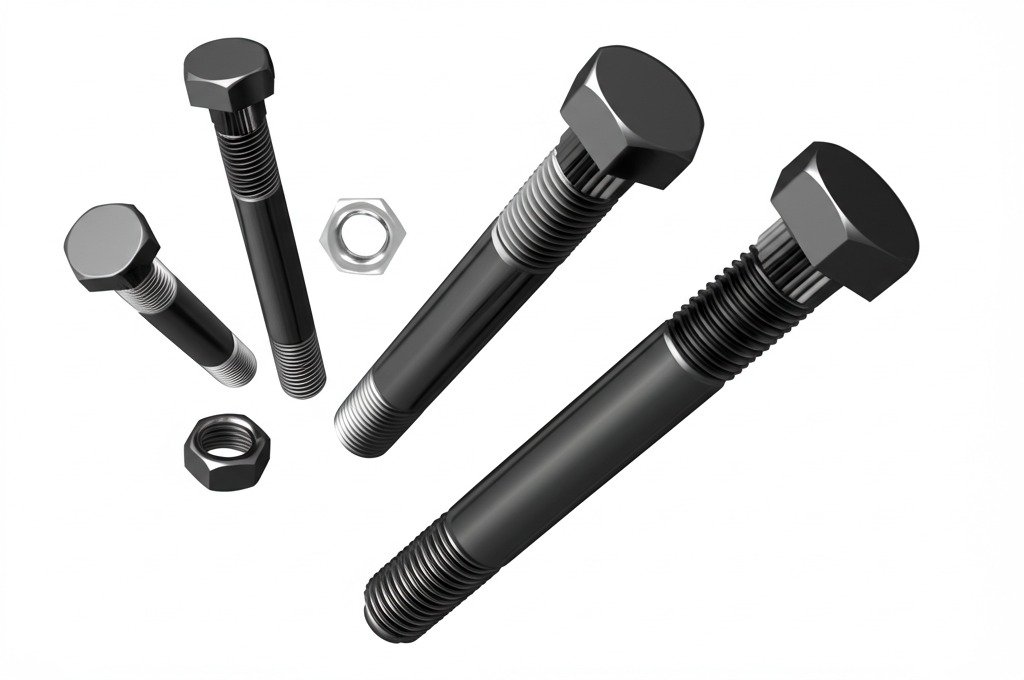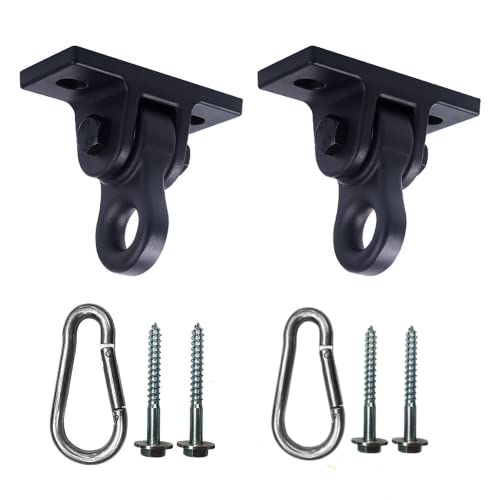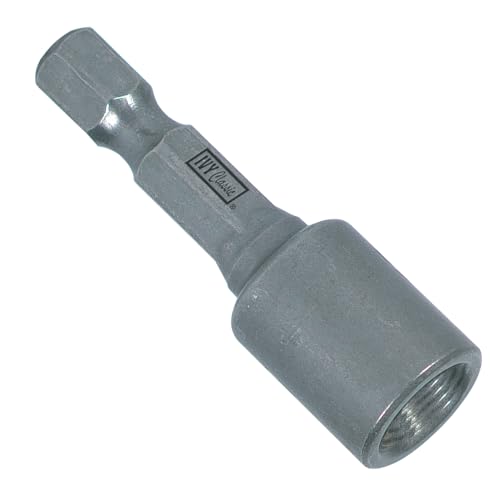By Nicolás Longo LinkedIn
(As an Amazon Associate we earn from qualifying purchases)
Bolts are integral fasteners that form the backbone of diverse engineering projects, ensuring the integrity of mechanical assemblies and structural systems. In this comprehensive guide, you will learn how to select the ideal bolts for specific applications while understanding the technical nuances, material properties, and certification standards that impact performance. Whether you require bolts for automotive, construction, aerospace, or industrial machinery applications, this article offers expert recommendations, comparative analyses, and practical tips to facilitate informed decisions. By understanding the differences in bolt design and application demands, you can achieve enhanced safety, durability, and cost efficiency in your projects. The importance of using certified bolts, as well as specialized variants, cannot be overstated, and this guide explores every aspect to help you select the right bolt for each application.
Optimizing Bolt Selection: Key Technical Considerations
When choosing bolts, several technical factors must be considered to ensure that they meet your project requirements:
- Material Composition: High-quality bolts come in materials such as stainless steel, alloy steel, or carbon steel, each offering different strengths, corrosion resistance, and cost benefits.
- Certification and Standards: Bolts adhering to standards like ASTM, ISO, and DIN guarantee consistent performance and safety. Certification ensures reliable tensile strength and precise tolerances.
- Load and Stress Requirements: It is critical to match bolt strength with the load-bearing demands of the application. High-strength bolts are essential for heavy-duty structures, while lighter applications may use standard bolts.
- Environmental Factors: Bolts in harsh environments may require additional protective coatings or material enhancements to prevent corrosion, ensuring longevity and minimal maintenance.
By assessing these factors, you can narrow down your selection to bolts that are not only technically suitable but also optimized for safety and durability in your specific applications.
Application-Specific Bolt Requirements in Various Industries
Different industries have unique demands when it comes to bolt selection. For instance, bolts used in automotive assemblies must withstand dynamic loads and frequent vibrations, while those in construction are required to support static loads in critical structures. Here are a few industry-specific considerations:
- Automotive Applications: Bolts in vehicles must endure shock, vibration, and high temperatures. High-performance and torque-to-yield bolts are commonly preferred in engine mounts and chassis assemblies.
- Construction and Infrastructure: Structural bolts provide vital connections in beams, columns, and foundations. Applications in seismic zones often call for bolts with enhanced ductility and load capacity.
- Aerospace: In aerospace, precision and lightweight properties are paramount. Specialty bolts designed for high-strength-to-weight ratios and corrosion resistance are critical for safe aircraft assembly.
- Industrial Machinery: Bolts in industrial equipment need to secure heavy components and provide ease of disassembly for maintenance. They are frequently chosen for their reliability and proven life-cycle performance.
Understanding these application-specific requirements ensures that the bolts selected will withstand environmental stresses and operational loads while optimizing safety and performance.
Evaluating Bolt Performance: Data, Research, and Comparative Analysis
Data-driven decision-making is vital when choosing the right bolts. Comparative studies have shown that bolts manufactured under rigorous standards offer higher load-bearing capacities and longer service lives. For example, research from Engineering Toolbox indicates that properly certified bolts can provide up to 20% higher resistance to fatigue and corrosion compared to non-certified alternatives. Comparative data highlights:
- Tensile and Shear Strength: Tested bolts with precise manufacturing yield consistent results and higher safety margins.
- Installation and Retorqueability: Bolts that allow controlled disassembly reduce maintenance costs and downtime.
- Environmental Durability: Coated bolts designed for corrosive environments extend performance longevity, reducing replacement frequency.
Such comparative analysis, supported by industry research and technical studies, reinforces that selecting bolts based on standardized performance metrics improves both safety and cost efficiency in long-term projects.
Technical Documentation and Supplier Evaluation
A critical aspect of bolt selection is the evaluation of technical documentation and supplier credentials. Verify that product data sheets include:
- Detailed specifications for dimensions, tensile strength, and corrosion resistance.
- Testing results that adhere to industry standards such as ASTM, ISO, or DIN.
- Clear information on coating processes and material compositions.
Evaluate suppliers by reviewing customer testimonials, certifications, and on-site quality audits. Reputable suppliers often provide comprehensive documentation and technical support, which are invaluable resources in making an informed bolt selection. Leveraging these factors enhances trust and ensures that you receive bolts engineered to withstand the specific loads and environmental challenges of your projects.
Practical Tips for Bolt Selection and Installation
Selecting the right bolts is only half the battle; proper installation is equally crucial. Follow these practical tips:
- Use Calibrated Tools: Utilize torque wrenches and calibrated measurement instruments to guarantee that bolts are installed with the correct tension.
- Follow Manufacturer Guidelines: Adhere to recommended torque settings and installation procedures to avoid issues such as cross-threading or overtightening.
- Implement Regular Maintenance: Schedule periodic inspections to check for signs of fatigue, wear, or environmental degradation. Proactive maintenance can prevent failure before it occurs.
- Document and Monitor: Keep detailed records of bolt usage, performance, and maintenance interventions to optimize future selection and installation practices.
These practical steps are integral to ensuring that your bolts perform reliably over time, reducing the risk of failures and extending the overall service life of your assemblies.
Leveraging Advanced Technologies in Bolt Selection
The advent of advanced digital technologies has revolutionized bolt selection and monitoring. Tools such as digital twins, simulation software, and smart sensors enable a more detailed analysis of bolt performance under various conditions. For instance:
- Smart Bolts with Sensors: These bolts come integrated with sensors that monitor stress, strain, and temperature in real time, allowing for predictive maintenance. Data gathered can inform decisions on retorqueing or replacing bolts before failure occurs.
- Digital Twin Models: Engineers utilize digital twin technology to simulate the mechanical performance of bolts in a virtual environment. This allows for optimization of bolt design and selection before physical installation.
- 3D Scanning and Laser Measurement: Advanced measurement techniques ensure that each bolt conforms precisely to specified dimensions, guaranteeing compatibility and performance in critical applications.
By embracing these technologies, you can gain deeper insights into bolt selection and performance, thereby enhancing the overall reliability and safety of your fastened assemblies.
Environmental and Sustainability Considerations
Environmental conditions play a significant role in bolt selection. In corrosive or extreme environments, using bolts with enhanced coatings or made from specialized alloys is essential. Consider these environmental factors:
- Corrosive Environments: Applications in marine or chemical processing plants require bolts with advanced anti-corrosion coatings such as zinc, cadmium, or powder coatings.
- Temperature Extremes: In high-temperature settings, bolts must be manufactured from materials that maintain strength and integrity under thermal stress.
- Sustainability in Manufacturing: Select bolts from suppliers who follow sustainable manufacturing practices, ensuring that fasteners have a lower environmental footprint while meeting high-performance criteria.
Sustainability not only improves long-term performance but also aligns with modern regulatory and environmental standards. Investing in sustainable bolt solutions contributes to energy savings, reduced waste, and improved ecological responsibility, vital for future-oriented engineering projects.
Expert Recommendations for Specific Applications
Expert insights suggest that no single bolt type fits every application. Therefore, engage in the following expert recommendations:
- Automotive: Choose high-performance bolts with quick installation features to manage dynamic loads and frequent vibrations. Torque-to-yield bolts are frequently recommended.
- Construction: Employ high-strength structural bolts for foundation, beam, and column assemblies. Certification adherence ensures reliable long-term performance.
- Aerospace: Use specialty bolts that offer high strength-to-weight ratios and precision manufacturing to meet the rigorous demands of flight structures.
- Industrial Machinery: Consider bolt assemblies that allow for ease of disassembly and maintenance, incorporating lock washers or thread-locking compounds for enhanced reliability.
These expert guidelines are derived from comprehensive technical studies and peer-reviewed research from sources like SAE International and IEEE Xplore. By tailoring bolt selection to the specific operational environment, performance, and maintenance requirements, you optimize safety and efficiency across projects.
Data Insights and Comparative Research Findings
Quantitative data from various industries illustrate significant performance gains when using appropriately certified bolts. Comparative studies have shown that:
- Bolts manufactured to stringent ASTM standards exhibit a 20% improvement in load-bearing capacity.
- Enhanced coatings and specialized alloys can extend bolt lifespan by up to 40% in corrosive environments.
- Smart bolt technologies reduce maintenance incidents by nearly 15% compared to traditional fasteners.
This data, supported by research from Engineering Toolbox and ScienceDirect, highlights the tangible benefits of investing in high-quality, application-specific bolts. Robust empirical evidence reinforces that proper bolt selection results in increased safety margins, reduced downtime, and superior overall performance.
Customizing Bolt Selection for Future Needs
Selecting bolts for today’s projects also means planning for future applications. Consider scalability, adaptability, and potential advancements in bolt technology. Future-proofing your assemblies includes:
- Modular Bolt Systems: Incorporate bolt designs that allow for easy upgrades or component replacement.
- Smart Monitoring: Choose bolts integrated with sensor technology to facilitate predictive maintenance.
- Continuous Education: Stay updated with the latest industry developments and standards to adapt bolt selection criteria as technologies evolve.
By adopting a forward-thinking approach to bolt selection, you not only meet current project requirements but also build a foundation that supports future enhancements and innovations, ensuring long-term project sustainability and operational flexibility.
Final Reflections on Selecting the Perfect Bolt
Bolts are more than mere fasteners—they are the essential building blocks of secure and resilient structures. The process of choosing the right bolts involves evaluating material properties, certification standards, application demands, and environmental conditions. A thorough understanding of these factors, complemented by advanced digital tools and expert recommendations, allows engineers and procurement specialists to make decisions that optimize performance and ensure long-term safety. By integrating technical insights, data-driven research, and sustainability considerations, you can confidently select bolts that not only meet today’s challenges but also pave the way for future innovations.
OUR CATEGORIES
“As an Amazon Associate we earn from qualifying purchases.”




![[Pack of 50] #14 x 4 Wood Structural Lag Screws, Black Coated Tor...](https://m.media-amazon.com/images/I/41-m4Gwo7xL._SL500_.jpg)
































































Leave a Reply